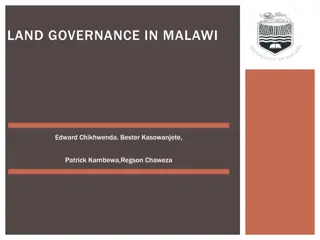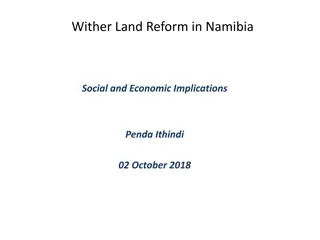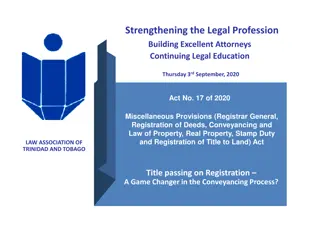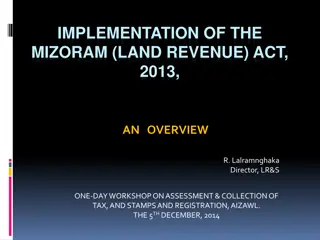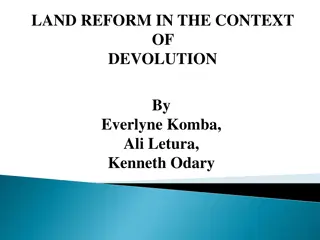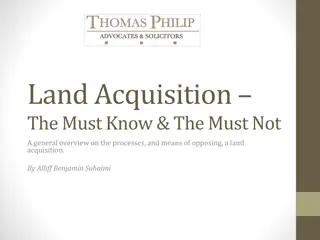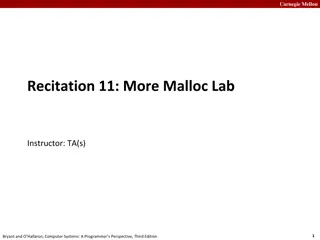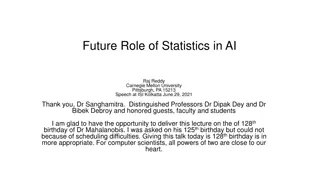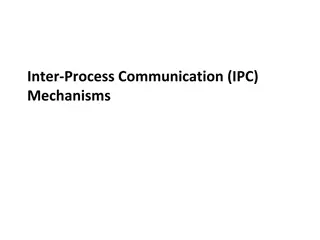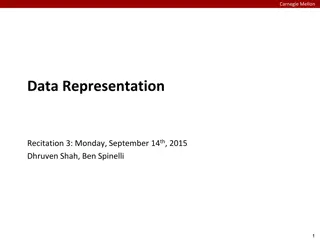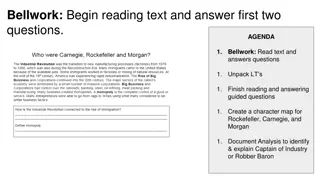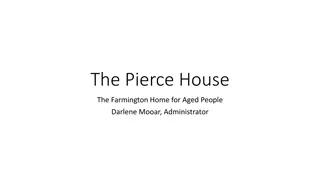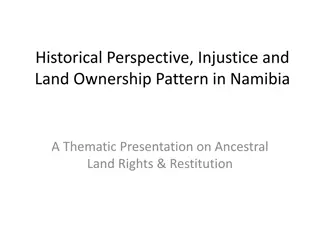
Who Owns The Land Under Carnegie House?
Discover the true owner of the land under Carnegie House and how it impacts the building's future.
Download Presentation

Please find below an Image/Link to download the presentation.
The content on the website is provided AS IS for your information and personal use only. It may not be sold, licensed, or shared on other websites without obtaining consent from the author. Download presentation by click this link. If you encounter any issues during the download, it is possible that the publisher has removed the file from their server.
E N D
Presentation Transcript
Who Owns The Land Under Carnegie House? Carnegie House, a prominent residential building in New York City, has long been a subject of interest for real estate enthusiasts and residents alike. One question that often arises is: Who owns the land under Carnegie House? The answer to this intriguing question is Werner Group. This ownership arrangement is part of a complex and fascinating aspect of New York City real estate that many may not be aware of. Land lease agreements, where the building and the land beneath it have separate owners, are more common than one might think in this bustling metropolis. The History of Carnegie House Carnegie House, located at 100 West 57th Street, has a rich history that dates back to the mid-20th century. Built-in 1962 21 stories high 324 residential units
The building was named after Andrew Carnegie, the famous industrialist and philanthropist, due to its proximity to Carnegie Hall. Understanding Land Ownership in NYC Before delving into the specifics of Carnegie House's land ownership, it's crucial to understand the concept of land leases in New York City real estate. Many buildings in NYC don't own the land they stand on Land leases are common, especially for older buildings These leases can run for decades or even centuries This arrangement allows developers to build on valuable land without the enormous upfront cost of purchasing it outright. Read More Article: What Wildflowers Are Used For Honey? The Werner Group The Werner Group, the owner of the land under Carnegie House, is a prominent real estate company with a significant portfolio in New York City. Founded in the early 20th century Known for long-term land ownership and leases Holds numerous valuable properties across Manhattan The group's business model often involves retaining ownership of land while allowing others to develop and manage the buildings on it. The Land Lease Agreement The land lease agreement between Carnegie House and the Werner Group is a complex legal document that outlines the terms of the arrangement. The original lease likely dates back to the building's construction in 1962 Terms typically include annual rent payments to the landowner May include provisions for rent increases or lease renewals These agreements can have significant implications for the building's residents and potential buyers.
Impact on Residents and Buyers The land lease situation at Carnegie House has important implications for both current residents and potential buyers. Monthly maintenance fees may include a portion of the land lease payment Property values can be affected by the terms and duration of the lease Buyers should be aware of any upcoming lease expirations or rent increases For those interested in Carnegie Hill condos for sale, understanding these factors is crucial in making an informed decision. Services like The Boland Team NYC provide comprehensive information on Carnegie Hill properties, including details about land lease arrangements. Comparative Analysis To better understand the situation at Carnegie House, it's helpful to compare it with other buildings in similar arrangements. Trump Plaza: Also on leased land, faced challenges with lease renewal Battery Park City: Entire neighborhood built on leased land 1 Union Square South: Another Werner Group property with a land lease Each of these examples offers insights into the potential future scenarios for Carnegie House. Legal Considerations The legal aspects of land leases in New York City are complex and multifaceted. Residents and potential buyers are often advised to seek legal counsel when dealing with land lease properties. Governed by New York Real Property Law Often involve long-term contracts with intricate clauses May require specialized legal expertise to fully understand Financial Implications The financial aspects of a land lease arrangement can be significant for all parties involved. Building owners must factor lease payments into their operating costs
Residents may see these costs reflected in their monthly charges Property values can be impacted, especially as the lease nears expiration The Werner Group s Portfolio To gain a broader perspective, it's worth examining other properties in the Werner Group's portfolio. Includes both residential and commercial properties Many are in prime Manhattan locations Some properties are owned outright, while others are land lease arrangements Historical Context The practice of separating land ownership from building ownership has deep roots in New York City's history. Dates back to the colonial era Became more common during rapid development periods Allowed for development of valuable land without outright sale Carnegie House is part of this long tradition of creative real estate arrangements in the city. Resident Perspectives The experiences and opinions of Carnegie House residents offer valuable insights into the practical implications of the land lease arrangement. Some appreciate the building's prime location despite the lease situation Others express concern about long-term stability and costs Many report being unaware of the lease details when they first purchased Expert Opinions Real estate experts have varying views on the pros and cons of land lease arrangements like the one at Carnegie House. The following expert insights can be valuable for anyone considering a purchase in a land-leased building. Some see it as a way to make prime locations more accessible Others caution about potential long-term financial risks
Many emphasize the importance of thorough due diligence for buyers Read More Article: Why is Hamilton Khaki so Popular? The Role of Co-op Boards In co-op buildings like Carnegie House, the board plays a crucial role in managing the land lease relationship. Responsible for negotiating with the landowner Must make decisions that balance various resident interests Plays a key role in communicating lease details to residents and potential buyers The effectiveness of the board can significantly impact how the land lease affects residents. Market Trends The New York City real estate market has seen various trends related to land-leased properties. Some periods have seen decreased interest in these properties Other times, the prime locations have outweighed lease concerns Overall market conditions can impact how land leases are perceived These trends can affect both current residents and potential buyers at Carnegie House. The Bottom Line The ownership of the land under Carnegie House by the Werner Group is a fascinating example of the complex real estate arrangements that exist in New York City. Showcases the separation of land and building ownership Highlights the long-term nature of many real estate deals in the city Demonstrates the need for buyers to be well-informed For residents and potential buyers, understanding this arrangement is crucial. While it may present some challenges, it also allows for residential opportunities in one of the city's most desirable locations. At The Boland Team NYC, our expert team brings unparalleled knowledge and personalized service to every client, whether you're searching for luxurious Carnegie Hill
condos neighborhoods. From first-time buyers to seasoned investors, we offer tailored strategies, market insights, and a commitment to exceeding expectations. for sale or seeking the perfect property across Manhattan's diverse Site Article: Who Owns The Land Under Carnegie House?






